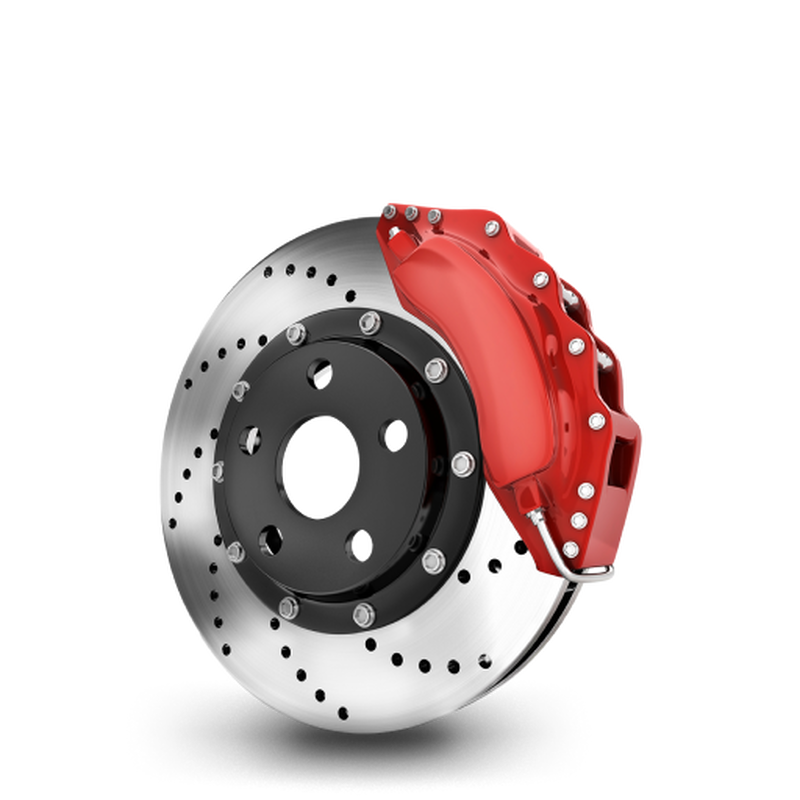AUTO SERVICE BASICS
Services
Brake Service & Repair
Priced In Store
Our specially trained brake specialists will inspect, repair, and if necessary, replace your brake system to ensure it's working efficiently and effectively. Our brake service and repair includes:
- Replacing your worn brake pads and/or brake shoes
- Resurfacing your brake rotors or drums
- Replacing your brake fluid as needed
Brakes are made of materials and components that wear down over time and they need to be inspected, repaired or replaced on a routine basis.
When brake inspections and maintenance are overlooked, it can lead to costlier repairs and replacements, as well as a dangerous inability to stop your vehicle.
We recommend having your brakes checked every 12 months or 15,000 miles. It’s always a good idea to check your owner’s manual for your vehicle manufacturer’s recommendation.
Your brakes are continuously squeaking, squealing, or grinding
Your brake or anti-lock braking system (ABS) warning light comes on
Your car jerks or pulls to one side when braking
Your brake pedal feels soft or goes to the floor when pressed
If your vehicle’s brake warning light comes on, you should have your vehicle inspected immediately. The warning light could illuminate for several reasons, including low brake fluid, worn brake pads, leaking brakes, or even a faulty sensor that may affect your antilock braking system.
Shaking may be caused by an out-of-round brake rotor or brake drum, which you might feel through the brake pedal. Another contributing factor could be a sticking brake caliper with worn out brake hardware, in which case you would feel vibrations through the steering wheel.
This symptom is usually a sign of worn-down friction material, which leaves the metal backing plate contacting the rotor. When this occurs, there may be wear or score marks on your rotors. Grinding may also be caused by contamination of friction material or misaligned pads due to worn out hardware. If grinding occurs, stop by our nearest location for a consultation.
You can get your vehicle’s brakes repaired or replaced at most automotive shops, including our local locations. Find a Service Center
Brake fluid is responsible for moving hydraulic components within a braking system. It is a non-compressible fluid that allows force from your foot to apply pressure on the brakes.
Brake fluid goes from the master cylinder (connected to the brake pedal) to the caliper or wheel cylinder at the wheels.
Learn more about brake fluids in our Brake Fluid & Flush ServiceThere are many factors that may determine the longevity of brakes, including environmental factors like mountain driving, highway driving, or stop-and-go traffic. Driver habits can also be a factor; do you gradually stop at a light, or stop with more pedal force? Additionally, the quality of the brake material can also be a factor.
Anti-lock braking systems (ABS) are designed to help prevent wheels from locking up, enabling the driver to make a controlled stop.
A brake caliper is the part of the brake system located at the wheel that applies pressure on the piston which, in turn, pushes the brake pad against the rotor to slow or stop the vehicle.
Brake pads should be replaced when there is 3 millimeters (mm) or less of friction material left, or when the wear indicator is activated.
Brake fluid is a clear liquid with a hint of yellow. If it appears dark in color, it may need to be replaced due to contamination and should be tested.

